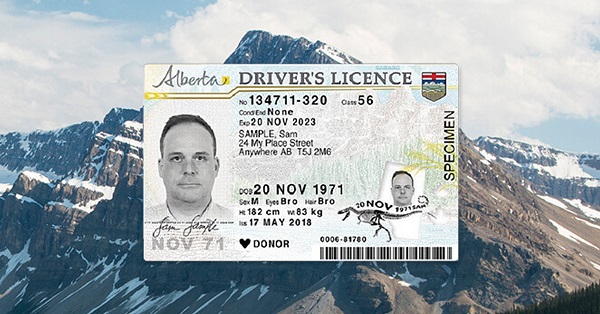Digital ID
World Bank president advocates global digital ID scheme at tech summit

World Bank President Anjay Banga
From LifeSiteNews
Once digital identity is established and connected with public-private infrastructure, then everything else can be built on top of it, including access to financial services, insurance, healthcare, education, and the process of starting a new business – digital ID would be required for everything.
The president of the World Bank calls on governments to launch digital identity schemes, so that they can be linked with the private sector and existing infrastructures.
Speaking at the World Bank Group’s inaugural Global Digital Summit last week, World Bank president Ajay Banga said that digital identity should be embraced worldwide, and that governments should be the owners, so they can guarantee privacy and security for their citizens.
According to Banga, once everyone is hooked-up to a digital ID, then it can be linked to existing infrastructure run by private companies.
“Creating a digital identity platform for citizenry is kind of foundational, and I believe your government should be the owner of your digital ID; private companies should not own that,” said the World Bank president, adding, “it is the social contract of the citizens of their countries to have an identity, a currency, and safety. We should not take that away from them.”
World Bank Pres Ajay Banga: "Creating a digital identity platform for citizenry is foundational; your govt should be the owner of your digital ID.. If you want this to be embraced around the world.. get a digital ID & move from there" Global Digital Summit https://t.co/Sa1GzCnloQ pic.twitter.com/kKClx5iUuT
— Tim Hinchliffe (@TimHinchliffe) March 11, 2024
They should have the digital identity; that digital identity should guarantee the privacy of that citizen; it should help them with their security, but the government should give the identity.
Once you do that, then connecting them to the infrastructure that a private company, either Ericsson or Verizon, or combinations of them – in fact mostly it’s a combination – then the question is, ‘What do you do with it that requires a digital ID?’ so you can start connecting with that citizen.
For Banga and other unelected globalists, digital identity is the key to unlocking access to goods and services through public-private partnerships – the fusion of corporation and state.
Once governments launch their digital identity schemes, the World Bank president says they should be connected to private companies and existing infrastructures.
“Now the question is that you connect with that citizen, you must ensure that governments guarantee the privacy of that citizen,” said Banga.
“Because if you don’t do that, you will run into trouble with the acceptance of the idea.
“So, if you want this to be embraced around the world, yes, get the infrastructure, get a digital ID […] get that going and then move from there,” he added.
 [Source: World Economic Forum]
[Source: World Economic Forum]
Once digital identity is established and connected with public-private infrastructure, then everything else can be built on top of it, including access to financial services, insurance, healthcare, education, and the process of starting a new business – digital ID would be required for everything.
The World Bank president’s words echo those of India’s digital ID architect Nandan Nilekani, who said at last year’s International Monetary Fund (IMF) Spring Meetings, “If you think, ‘what are the tools of the New World?’ – Everybody should have a digital ID; everybody should have a bank account; everybody should have a smartphone.”
“Then, anything can be done. Everything else is built on that.”
"What are the tools of the New World? Everybody should have a digital ID; everybody should have a bank account; everybody should have a smartphone. Then, anything can be done. Everything else is built on that": @NandanNilekani to @IMFNews #DigitalID #DigitalIdentity #IMFmeetings pic.twitter.com/6HIAqfBigz
— Tim Hinchliffe (@TimHinchliffe) April 19, 2023
Nilekani is a staunch advocate of digital public infrastructure (DPI), which consists of three components: digital identity, digital payments systems, and mass data sharing.
Last year, the G20 India Leaders’ Declaration stated:
We endorse the voluntary and nonbinding G20 Policy Recommendations for Advancing Financial Inclusion and Productivity Gains through Digital Public Infrastructure. We take note of the significant role of digital public infrastructure in helping to advance financial inclusion in support of inclusive growth and sustainable development.
Prior to the G20 Summit, the B20 India Communique recommended that members, “Roll out digital public infrastructure to boost financial inclusion and healthcare access.”
Then in November 2023, the United Nations, the Bill and Melinda Gates Foundation, and their partners launched the 50-in-5 campaign to help “50 countries design, launch, and scale components of their digital public infrastructure” within the next five years.
Ahead of last month’s vote on an update to the European digital identity framework, a small number of MEPs spoke out against the adoption of an EU-wide digital identity wallet, calling it an insult to democracy that was creating a QR code society and leading to a Chinese-style system of social credit.
Reprinted with permission from The Sociable.
Artificial Intelligence
China wrote the playbook on AI surveillance. Will Canada adopt the playbook?

This article supplied by Troy Media.
China is an example of AI surveillance in action. Canada should take that as a warning, not a blueprint
China shows what happens when artificial intelligence is weaponized by the state.
Its Social Credit System, a nationwide framework to rate the “trustworthiness” of citizens and businesses, decides whether people can get a loan, buy a home, travel abroad or even move freely inside the country by merging financial records, online activity, travel history and facial recognition data into one algorithmic profile.
Sold as a way to curb fraud and tax evasion, it quickly became a tool to track political loyalty and personal behaviour the state doesn’t like. Step out of line, and the system punishes you.
Canadians should treat China’s misuse of AI as a warning. AI is advancing so fast that, without strict limits, we could slide into a similar dystopian future—one where governments promise efficiency and safety but use technology to tighten control over everyday life.
It wouldn’t take much for such a system to take root here. The data, the technology and the surveillance tools already exist. All that’s missing is the
decision to connect them.
Canadian governments have already shown they are willing to impose sweeping controls and restrict freedoms when faced with dissent or crisis. During the COVID-19 pandemic, the Liberal government invoked the Emergencies Act—a law that grants Ottawa extraordinary temporary powers, including the ability to freeze bank accounts and bypass normal parliamentary debate—to limit movement in response to protests. Across Canada, governments closed businesses, banned gatherings, restricted travel within and outside the country, and introduced vaccine passport systems that
restricted access to certain public spaces.
Now imagine those same powers supercharged by AI—able to track, predict and act in real time, with decisions automated and enforcement instant. What used to be broad and temporary restrictions could become precise, ongoing controls that are almost impossible to resist.
A Canadian version of China’s Social Credit System could link tax filings, health records, driver’s licences, transit passes, social media accounts and other personal data. When once-separate databases are linked, previously separate pieces of information combine into a detailed profile, making it far easier to monitor, predict and restrict a person’s actions. With that much linked information, governments wouldn’t just know what you’ve done—they could control what you’re allowed to do next. That’s not a distant, sci-fi scenario.
This is why regulation matters—but Canada’s current plan falls short. The proposed Artificial Intelligence and Data Act (AIDA), part of Bill C-27, is meant to be Canada’s first law governing artificial intelligence systems that could have major impacts on people’s lives. These so-called “high-impact” systems include AI used in areas like health care, hiring, law enforcement, credit scoring and critical infrastructure—technologies where errors, bias or abuse could have serious consequences.
On paper, AIDA would regulate these systems, require risk assessments and keep humans in the loop for key decisions. But with its narrow scope, weak enforcement powers and a rollout that could take years before its rules are fully in force, it risks becoming a safety net with a hole in the middle, in effect more about managing political optics than preventing abuse.
AI surveillance is no longer a future threat—it’s already here. It combines cameras, sensors and massive databases to track people in real time, often without their knowledge or consent. It can predict behaviour, automate decisions and enforce rules instantly. Mustafa Suleyman, in The Coming Wave, warns that AI must be contained before it becomes uncontrollable. Shoshana Zuboff, in The Age of Surveillance Capitalism, reaches the same conclusion: AI is tailor-made for mass monitoring, and once embedded, these systems are almost impossible to dismantle.
Some insist that slowing AI’s development would be pointless, that other nations and corporations would race ahead. But that argument is dangerously naive. History shows that once governments and corporations gain powerful surveillance tools, they don’t give them up—they expand their reach, change their purpose and tighten their grip.
China’s example proves the point. The Social Credit System was never just about unpaid debts or tax evasion. Its real purpose has always been to track people and control their behaviour. Today, it measures political loyalty as much as financial reliability, punishing citizens for anything from joining a protest to criticizing the government online. Jobs, housing, education and even the right to travel can be revoked with a few keystrokes. Once a government is allowed to define “public good” and enforce it algorithmically, freedom becomes a privilege—granted or taken away at will.
Yes, AI-driven surveillance can catch criminals, detect threats and manage crises. But those benefits come at a cost. Once such a system is in place, it rarely returns to its original purpose. It finds new uses, and it becomes permanent.
The choice for Canadians is clear: demand enforceable laws, transparent oversight and real accountability now—before it’s too late.
Dr. Perry Kinkaide is a visionary leader and change agent. Since retiring in 2001, he has served as an advisor and director for various organizations and founded the Alberta Council of Technologies Society in 2005. Previously, he held leadership roles at KPMG Consulting and the Alberta Government. He holds a BA from Colgate University and an MSc and PhD in Brain Research from the University of Alberta.
Troy Media empowers Canadian community news outlets by providing independent, insightful analysis and commentary. Our mission is to support local media in helping Canadians stay informed and engaged by delivering reliable content that strengthens community connections and deepens understanding across the country
Digital ID
Canada’s Liberal government moves forward with plans for digital ID system

From LifeSiteNews
The Department of Social Development hired outside consultants to provide expertise in creating a centralized, ‘single sign-in portal’ to replace about 60 different systems.
The Canadian federal government hired outside consultants who will be tasked with looking into whether or not officials should proceed with creating a digital ID system for all citizens and residents.
Canada’s Department of Social Development claimed in a May 20 note that the proposal is so complex it does not have the expertise to determine whether such a system is needed.
“Building this kind of system is complex and requires certain specialized tools and expertise we don’t have in-house,” the department noted.
“Based on international best practices, we are asking industry to help.”
The cost for hiring the consultants has not been disclosed, as per Blacklock’s Reporter. Also, there has been no parliamentary oversight to investigate the contracting.
The Social Development department said that it is moving “to next steps to our engagement of external contractors,” also noting, “This solution will give departments the ability to issue digital versions of the physical credentials they already provide today.”
The government claims that it is looking at “proceeding with procurements for issuing and verifying digital credentials” because they are “secure, digital versions of physical documents like work permits or boating licenses that can be stored in a digital wallet.”
“They offer a quicker, safer, more secure and more cost-effective way to access government services,” the government note claims.
While the department for now says that such a digital ID system would not be mandatory but “voluntary,” it noted that it is moving toward a centralized, “single sign-in portal” that would replace about 60 different systems.
Canada’s Privy Council research from 2023 noted that there is strong public resistance to the use of digital IDs to access government services.
Current Canadian Prime Minister Mark Carney has a history of supporting central bank digital currencies and in 2022 supported “choking off the money” donated to the Freedom Convoy protests against COVID mandates.
As late as February, the Liberal government under former Prime Minister Justin Trudeau’s immigration ministry, as reported by LifeSiteNews, was secretly asking Canadians via surveys if they would accept a national identification program that would likely end up requiring each citizen to always have a type of “digital” passport on them.
While the Liberal government under Trudeau insisted the program would be optional, Conservative leader Pierre Poilievre nonetheless sounded the alarm by promising to introduce a new bill that would “expressly prohibit” digital IDs in Canada.
Digital IDs and similar systems have long been pushed by globalist groups like the World Economic Forum, an organization with which Liberal Party leader Mark Carney has extensive ties, under the guise of ease of access and security.
Critics, however, have warned that the purpose of such a system is actually to centralize control over citizens. This opinion seems to be mirrored by the general public, with a Bank of Canada survey finding that Canadians are very wary of a government-backed digital currency, concluding that a “significant number” of citizens would resist the implementation of such a system.
-

 Business1 day ago
Business1 day agoCarney’s ‘major projects’ list no cause for celebration
-

 Business1 day ago
Business1 day agoGlobal elites insisting on digital currency to phase out cash
-

 Business1 day ago
Business1 day agoRed tape is killing Canadian housing affordability
-

 Health1 day ago
Health1 day agoMAiD should not be a response to depression
-

 Artificial Intelligence1 day ago
Artificial Intelligence1 day agoUK Police Chief Hails Facial Recognition, Outlines Drone and AI Policing Plans
-

 Business1 day ago
Business1 day agoOttawa’s so-called ‘Clean Fuel Standards’ cause more harm than good
-

 Business1 day ago
Business1 day agoThe Truth Is Buried Under Sechelt’s Unproven Graves
-

 International1 day ago
International1 day agoFrance records more deaths than births for the first time in 80 years







